Program Faculty
Human Development and Family Sciences
HDFS faculty are national leaders focused on interdisciplinary research and teaching across four signature areas:
- Transitions across the life course
- Resilience and health across the lifespan
- Families in sociocultural contexts
- Policies and applications of developmental and family science
To contact faculty please visit their profile pages linked from their names.
HDFS program faculty

Teresa L. Ashford, MS
Instructor
Teresa's teaching is guided by social responsibility, compassion, real-world experiences, and a love for the subject matter. Students engage in inquiry-based learning with interdisciplinary content to recognize the critical importance of gender, culture, diversity, and contemporary and global perspectives.
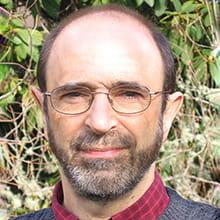
Marc Braverman, PhD
Professor
Extension Family and Community Health Program
Marc's research examines adolescent health, health promotion theory and interventions, smoking prevention and control, tobacco policy, program evaluation design and analysis, and the design and delivery of community programs.
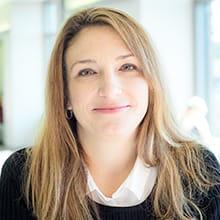
Kelly Chandler, PhD
Associate Professor
Kelly applies a work-family justice lens to study how working conditions, workplace culture, and work-family policies affect the health and daily lives of employees and their families. She also examines the implications of work for family processes, including emotional transmission, family routines, and parental socialization.
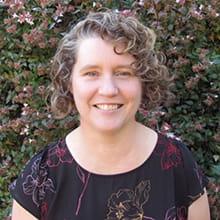
Tasha Galardi, PhD
Senior Instructor
HDFS Internship Coordinator
Tasha is committed to providing active learning opportunities in the classroom and enjoys getting to know her students as individuals. She has a particular interest in service and experiential learning, with an eye toward helping students pursue career goals that align with their strengths and passions.
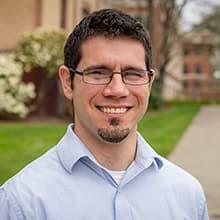
John Geldhof, PhD
Associate Professor
HDFS Doctoral Program Director
John's research focuses on the development of self-regulation across the lifespan and the relationship between intentional self-regulation and positive developmental outcomes, especially positive youth development. He is also interested in quantitative methodology, both as a research domain and as a tool for optimizing his empirical research. As a substantive topic, his quantitative research focuses on latent variable and multilevel modeling techniques. He is also interested in the analysis of intensive repeated measures data.
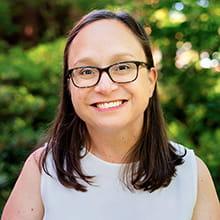
Bridget Hatfield, PhD
Associate Professor
HDFS Undergraduate Program Director
Bridget is interested in teacher- and parent-child relationships in early childhood, children’s stress and school readiness skills, quality of early childhood education, teacher professional development and implications for policy.

Brianne Kothari, PhD
Associate Professor
OSU-Cascades
Brianne's research focuses on understanding the experiences and trajectories of at-risk populations as well as on designing, implementing and evaluating developmentally appropriate, family systems focused interventions.

Shannon Lipscomb, PhD
Associate Professor
OSU-Cascades
Shannon’s research identifies ways to promote resilience among young children, families, and early childhood teachers and providers.

Katherine (Kate) MacTavish, PhD
Associate Professor
Kate's research focuses on rural families and communities, community effects, family management strategies and child/youth development in risky rural contexts, rural housing, rural schools, poverty and community development.
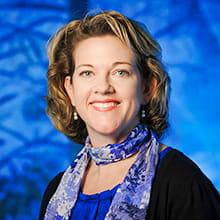
Megan McClelland, PhD
Professor
Katherine E. Smith Healthy Children and Families Professor, Hallie Ford Director for the Center for Healthy Children and Families
Megan's research is broadly focused on optimizing children's development, especially as it relates to social and cognitive development, and school success. In general, she is interested in the importance of children's self-regulation, executive function, and social competence for success in preschool, elementary school, and throughout the lifespan. Her recent research has focused on developing measures of self-regulation and interventions to promote school readiness and success.
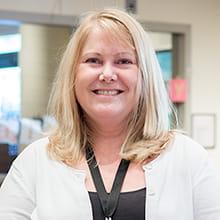
Kathleen McDonnell
Senior Instructor
Director of the OSU Child Development Center
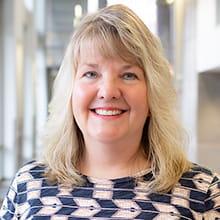
Lori McGraw, Ph.D., MS
Senior Instructor II
Lori focuses on high-impact teaching pedagogy, social justice, equity and inclusion, and excellence in online teaching.
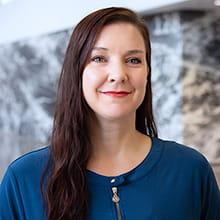
Monica Olvera, PhD
Senior Instructor
Monica is interested in transnational families, mothering practices among immigrant Latina women, and positive cultural identity.

Megan Pratt, PhD
Assistant Professor (Practice)
Megan's work examines how early learning in both formal and informal, community settings can best support families with young children.

David Rothwell, MSW, PhD
Associate Professor
Barbara E. Knudson Endowed Chair in Family Policy
David studies how the lives of children and families are affected by poverty and economic inequality. Current research focuses on understanding variations in poverty and family policy in rural America, Oregon, and across countries.
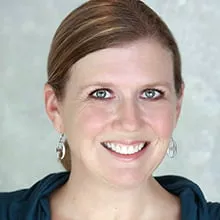
Suzanne C. Segerstrom, PhD, MPH
Professor
Jo Anne Leonard Peterson Endowed Chair for Gerontology and Family Studies, Co-Director for the Center for Healthy Aging Research
Suzanne’s research addresses the interactions among psychological, cognitive, immunological, and physical health in older adults, especially involving self-regulation and repetitive thought. She uses longitudinal and longitudinal burst as well as quasi-experimental designs to answer research questions about these interactions. As such, she has particular interest and expertise in longitudinal data analysis and multilevel modeling, as well as the measurement properties of biomarkers such as diurnal cortisol.

Richard A. Settersten, Jr., PhD
University Distinguished Professor
Vice Provost for Faculty Affairs
Rick's research focuses on the life course, age and aging, transitions, social relationships, historical experiences and social change, parenthood and family life, and social policy.

Shauna Tominey, PhD
Associate Professor
Shauna's research focuses broadly on social and emotional learning (SEL) for children, youth, and adults. As a former practitioner and family services professional, she blends practical experience with research to develop and test programs focused on the intersections of SEL, identity, and racial/social justice. She studies how each can be supported for children, youth, and adults in the context of relationships at school, at home, and in the community.
Associated Faculty
Professor Emeritus
Intergenerational relations, family structure, fathering, at risk families, & quantitative methods.
Professor Emeritus
How psychosocial factors affect health, especially how individuals cope with stress. How personality, mental health, and physical health change across the lifespan. And factors which affect the rate of aging, as well as stress-related growth.
Positive youth development in applied settings with a focus on youth programs as developmental contexts that support thriving.
Geriatric mental health, depression, dementia, intergenerational relations and aging, welfare reform,welfare-to-work, family/school/community partnerships.
Professor Emeritus
Self and personality processes in understanding risk and resilience factors for optimal aging. This includes understanding the role of intergenerational relationships in fostering healthy attitudes towards aging.